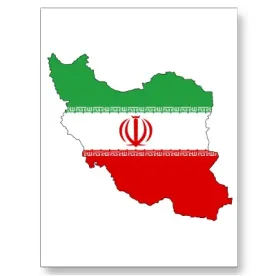The impact of Implementation Day will vary depending on whether you are a US Person, a US-owned or controlled Foreign Entity, or a Foreign Person with no US nexus—what’s your status?
On January 16, the United States relaxed sanctions against Iran, marking “Implementation Day” in connection with the Joint Comprehensive Plan of Action (JCPOA) entered into by the United States, European Union, United Kingdom, France, China, Russia, Germany, and Iran, for which Iran has presumably met key nuclear-related measures required by the agreement.
This relaxation of sanctions against Iran results in (1) very few changes for US individuals and US companies (US Persons); (2) somewhat greater changes for foreign companies that are owned or controlled by US Persons (US-owned or controlled Foreign Entities); and (3) rather significant changes for foreign companies that have no US Person ownership (Foreign Persons) that are involved in Iranian transactions with no US nexus (such as any US-origin content).
The sanctions relaxation that occurred on January 16 emanates almost exclusively from the US Government’s (USG’s) revision of nuclear-related secondary Iran sanctions and the USG’s relatively minor modifications to its primary Iran sanctions.
Before summarizing the implications of the Iran sanction relaxation that occurred on Implementation Day, it is important to clarify the following:
-
Primary Iran sanctions are those US sanctions that apply to
(1) the Iran-related activities of US Persons;
(2) the Iran-related activities of US-owned or controlled Foreign Entities; and
(3) the direct and indirect export, re-export, or transfer to Iran of US-regulated goods and technology by US Persons, US-owned or controlled Foreign Entities, and Foreign Persons.
These sanction measures were imposed principally for antiterrorism or other non-nuclear reasons. With only limited exceptions, the primary Iran sanctions remain largely in place despite Implementation Day.
Nuclear-related secondary Iran sanctions target transactions by Foreign Persons to the extent that such transactions have no US nexus (such as any US-origin content) and are not otherwise subject to US “primary” Iran sanctions.
These sanction measures were imposed principally for nuclear-related reasons and were intended to deter Foreign Persons from engaging in activities involving certain specified sectors of the Iranian economy, including energy, petrochemical, automotive, financial, banking, mining, shipbuilding, and shipping. On Implementation Day, the US relaxed secondary sanctions related to these sectors of the Iranian economy and removed certain Iranian parties from the Office of Foreign Asset Control’s (OFAC’s) Specially Designated Nationals (SDN) List. By relaxing the secondary Iran sanctions in this manner, the USG effectively removed US-imposed restraints on dealings by Foreign Persons with the formerly targeted Iranian business sectors.
So what does US Iran sanctions relaxation post-Implementation Day (1.16.2016) really mean for each of the constituents delineated below?
US Individuals and US Companies (US Persons)
For US Persons, very few changes were made to the status quo. The sanction changes implemented on January 16 applicable to US Persons constitute relatively minor modifications to the USG’s primary Iran sanctions. These sanctions already encompass several “general licenses” that authorize US Persons’ exports of medicine, medical devices, and agricultural products to Iran. These longstanding general licenses remain available. However, in accordance with the terms of the JCPOA, the United States committed to license three additional categories of activities that would otherwise be prohibited under the USG’s primary Iran sanctions.
These additional categories of activities are licensed by means of the following:
-
General License H—Issued and effective on Implementation Day.
As issued, General License H authorizes US Persons to engage, to the extent necessary, in the following activities in connection with transactions involving Iran that US-owned or controlled Foreign Entities are otherwise authorized to conduct pursuant to General License H:
(1) activities related to the establishment or alteration of operating policies and procedures of a US entity or a US-owned or controlled Foreign Entity so that the US-owned or controlled Foreign Entity can engage in activities newly authorized by General License H; and
(2) activities to make available to US-owned or controlled Foreign Entities automated and globally integrated computer, accounting, email, telecommunications, or other business support system, platform, database, application, or server necessary to store, collect, transmit, generate, or otherwise process documents or information. Separate authorization of these activities in General License H was necessary because such activities would otherwise be prohibited as “facilitation” under the Iran Transaction Sanction Regulations (ITSR) in section 31 C.F.R. part 560. 208. Please note, however, that General License H does not authorize US Persons’ involvement in any ongoing Iran-related operations or decision making of a foreign-owned or controlled foreign entity. US Persons cannot be involved in the Iran-related day-to-day operations of a US-owned or controlled Foreign Entity, including through the acts of approving, financing, facilitating, or guaranteeing any Iran-related transaction.
-
A new as-yet-untitled general license, which shall be effective upon publication in the Federal Register.
This general license will authorize US Persons to import Iranian-origin carpets and foodstuffs (including pistachios and caviar) into the United States. -
A Statement of Licensing Policy—Issued and effective on Implementation Day.
This Licensing Policy Statement provides for a favorable case-by-case review of specific license applications submitted to OFAC by individuals and entities who request OFAC authorization to export, re-export, sell, lease, or transfer commercial passenger aircraft (as well as related parts and services) to Iran.
Aside from these minor modifications, the USG’s primary Iran sanctions remain largely unchanged after Implementation Day and, as a consequence, US Persons continue to be broadly prohibited from engaging in transactions or dealings in or with Iran or its government. In addition, the government of Iran and Iranian financial institutions remain persons whose property and interests in property are blocked; US Persons continue to be broadly prohibited from engaging in transactions or dealings with the government of Iran and Iranian financial institutions, with the exception of transactions that are exempt from regulation or authorized by OFAC.
Non-US entities that are owned or controlled by US Persons (US-owned or controlled Foreign Entities)
Somewhat greater changes than those that affect US Persons resulted for US-owned or controlled Foreign Entities in the wake of Implementation Day.
These changes occurred exclusively through the issuance of General License H, which was issued and became effective on Implementation Day. General License H authorizes US-owned or controlled Foreign Entities to engage in transactions, directly or indirectly, with the government of Iran (or any person subject to the jurisdiction of the government of Iran) that otherwise would be prohibited by the US primary Iran sanctions under 31 C.F.R. § 560.215. This authorization is significantly constrained by several key exceptions that exclude from the ambit of General License H certain specified transactions, including but not limited to the following:
-
Direct and indirect re-exports to Iran of any goods, technology, or services originally exported from the United States without separate authorization from OFAC
-
Transactions involving a person included in OFAC's SDN List or any person identified on the List of Foreign Sanctions Evaders pursuant to Executive Order 13608
-
Transfer of funds to, from, or through the US financial system, whether denominated in US dollars or any other currency
To insure that an intended transaction is authorized under General License H, it is essential for US-owned or controlled Foreign Entities to closely review the provisions of General License H and its significant exceptions. If an intended transaction does not fall entirely within the scope of General License H, it is not a permissible transaction and would constitute a violation of 31 C.F.R. § 560.215 in the US primary Iran sanctions.
Foreign Persons that have no US Person ownership that are involved in Iranian transactions with no US nexus
Rather significant changes have been implemented following Implementation Day for Foreign Persons that are devoid of US Person ownership and that are engaged in Iranian transactions with no US nexus.
On Implementation Day, the United States lifted its nuclear-related secondary sanctions against Iran. These sanctions were directed toward Foreign Persons that engaged in certain conduct that occurred entirely outside of US jurisdiction but involved industry sectors in Iran for which the United States sought to curtail development and growth. These industry sectors included energy, petrochemical, automotive, financial, banking, mining, shipbuilding, and shipping. By lifting the secondary sanctions against Iran, the USG effectively removed US-imposed restraints on dealings by Foreign Persons with formerly targeted Iranian business sectors. That said, it is important for such Foreign Persons to consider the possible implications of the US primary Iran sanctions as well as the remaining US secondary Iran sanctions before undertaking activities involving Iranian industry sectors that were formerly targeted.
Primary Iran sanctions and secondary Iran sanctions may be implicated as follows:
-
Foreign Persons continue to be prohibited from knowingly engaging in conduct that seeks to evade US restrictions on transactions or dealings with Iran or that causes the export of goods or services from the United States to Iran.
-
Foreign Persons continue to be prohibited from exporting, re-exporting, or transferring to Iran any goods, technology, or services originally exported from the United States and/or subject to US export jurisdiction.
-
Secondary sanctions continue to apply to Foreign Persons for conducting transactions with Iranian or Iran-related individuals and entities that remain or are placed in the future on the SDN List, notwithstanding the lifting of secondary sanctions.
-
The authorizations under General License H that are available to US Persons and US-owned or controlled Foreign Entities are not available in the case of a Foreign Person’s dealings with Iran and, accordingly, no US Person may approve, guarantee, or facilitate a transaction by a Foreign Person that is prohibited for such US Person.
Summary and Conclusions
Much of the above discussion is based on the Guidance and FAQs that OFAC has published on its website. However, it should be noted that OFAC has prefaced its FAQ section with a disclaimer that states the following:
“This document is explanatory only and does not have the force of law. Please see particularly the legally binding provisions. . .governing the sanctions. This document does not supplement or modify the statutory authorities, Executive orders, or regulations.”
Please keep this disclaimer in mind and note that the analysis here may be subject to future revision as necessary and appropriate.




 />i
/>i

